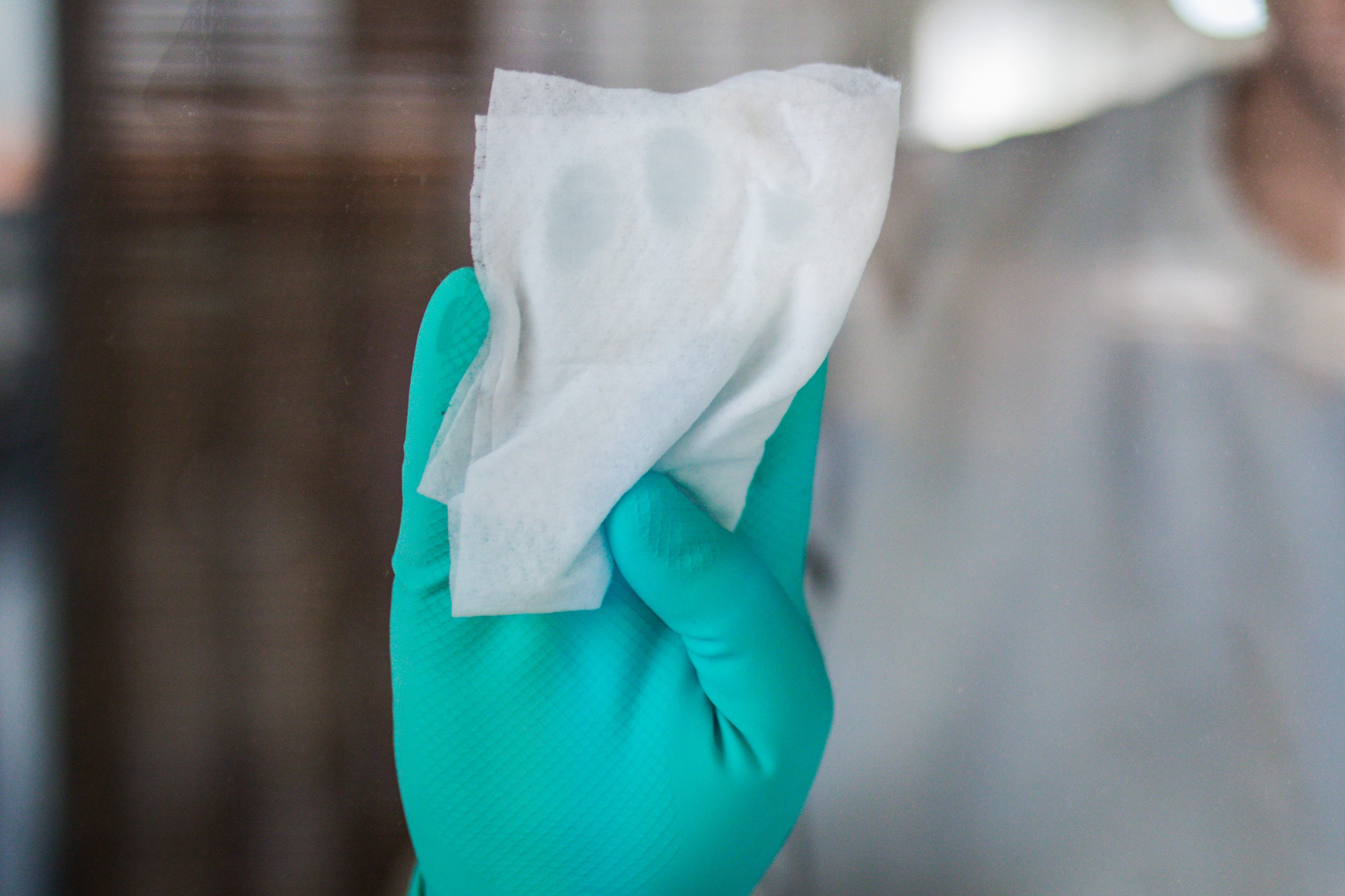
Careful cleaning
People can’t get enough antibacterial wipes right now as they’re reevaluating their cleaning regimens. Even the less-germophobic of us might be scrubbing down every surface in our homes. But… should we? Of course, it’s important to keep things clean, but if you’re making any of these mistakes with antibacterial wipes, you could be sabotaging your cleaning process.
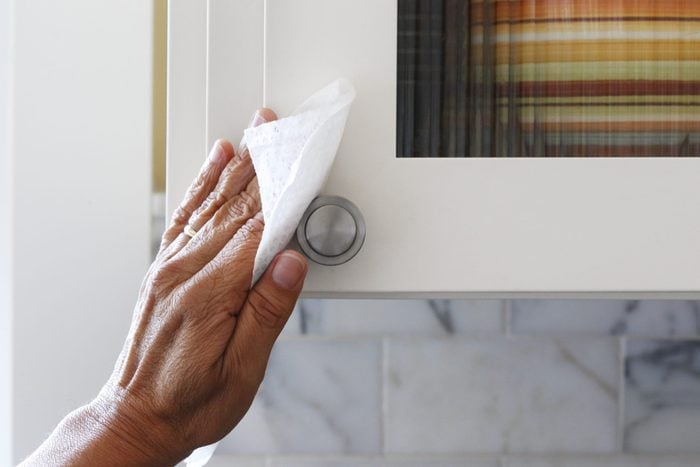
Using it for more than one thing
It may seem less wasteful, not to mention easier, to use a single wipe on several different things; for instance, using only one or two wipes to clean your whole kitchen. But there are a couple of reasons you shouldn’t do this. “One wipe should be used per area,” says Kathy Turley, director of marketing at Home Clean Heroes. “You don’t want to use the same wipe to clean the toilet handle and then use it on the front doorknob.” Thinking about that example seems obvious, but it applies across the board. Using the same wipe for multiple surfaces can spread germs and dirt from one space to another. Not to mention, a single antibacterial wipe likely doesn’t have enough power to effectively clean several different surfaces.
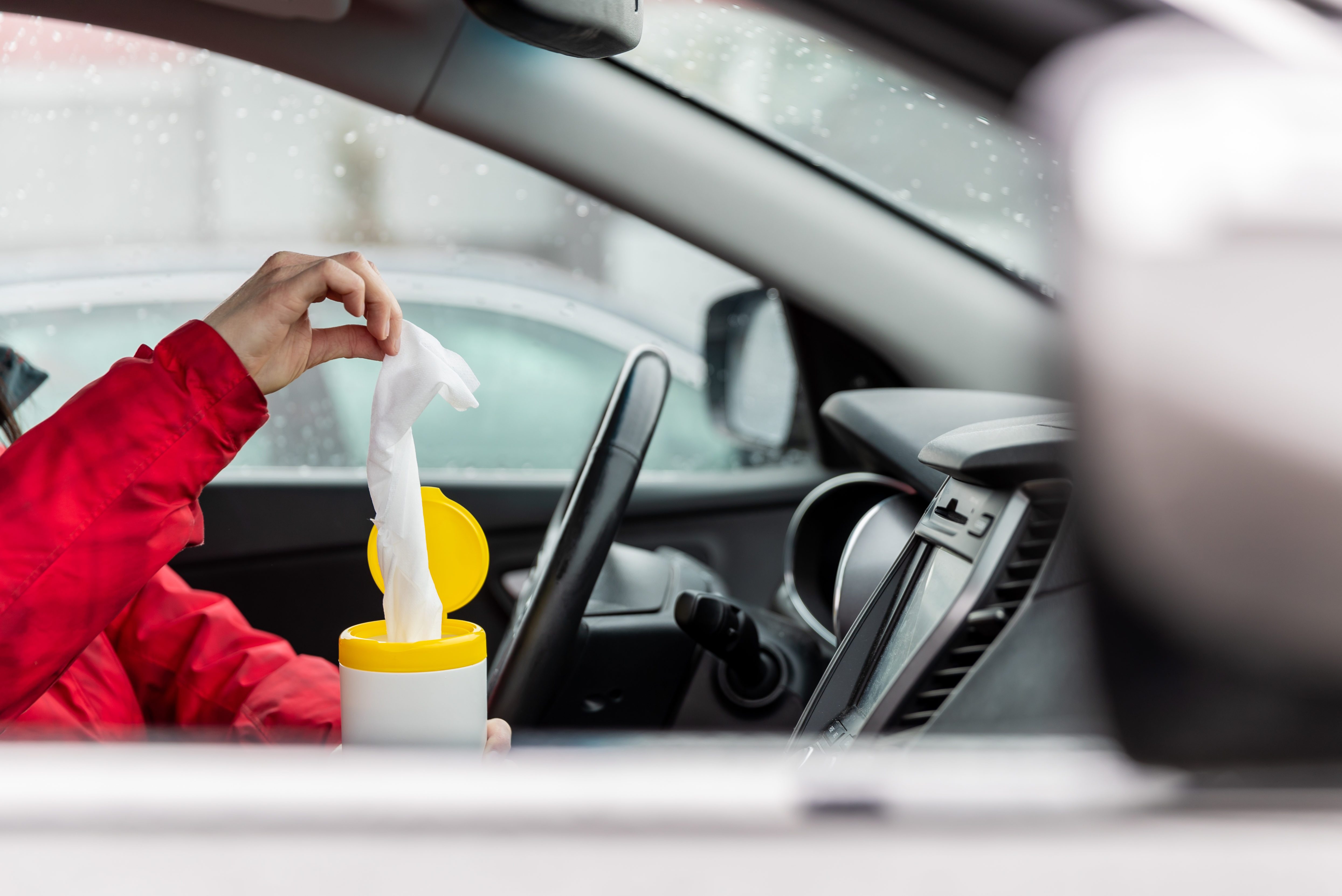
Not reading the label
We know, labels are boring. But reading the label on your antibacterial wipes can help you use it to greatest effect. The label reveals “how long the product must remain wet on a surface to inactivate all the bugs,” something you’ve probably never even thought about, explains Karen Daw, dental and medical OSHA and Infection Control coach and speaker. She says that in many cases, the surface should remain wet for at least three to four minutes to kill the germs on the surface, and the label will specify that.
Also, the labels on the wipes can actually reveal what types of microbes it’s effective against. Don’t assume that every type of wipes kills everything. After all, it’s antibacterial wipes, which means that it’s equipped to kill bacteria—not necessarily viruses. “Don’t assume the antibacterial wipe is also effective against viruses,” says Daw. “The label will clearly list the time needed to inactivate specific bugs.” If you’re specifically looking for household products that kill coronavirus, we’ve got a list.
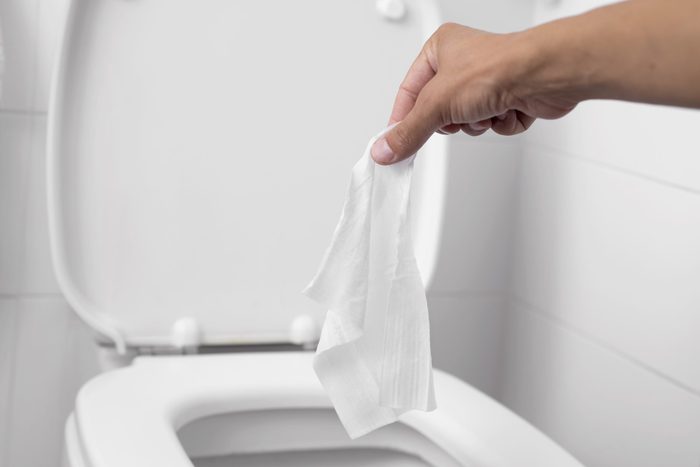
Flushing it down the toilet
This mistake has been especially prevalent in 2020, as people have been short on toilet paper and resorting to using other things—like wipes. You certainly can use wipes, but throw it away rather than flushing it down the toilet. Yes, even throw away the wipes if the packaging says “flushable.” And, though we just said reading the label is important, this is one part of the label that you can and should ignore. “The wipes are thicker than toilet paper and don’t break down as easily, and can get caught up in the pipes, causing potential blockages—or worse, overflow!” explains Turley. Learn more about which toilet paper alternatives will and won’t clog your toilet.
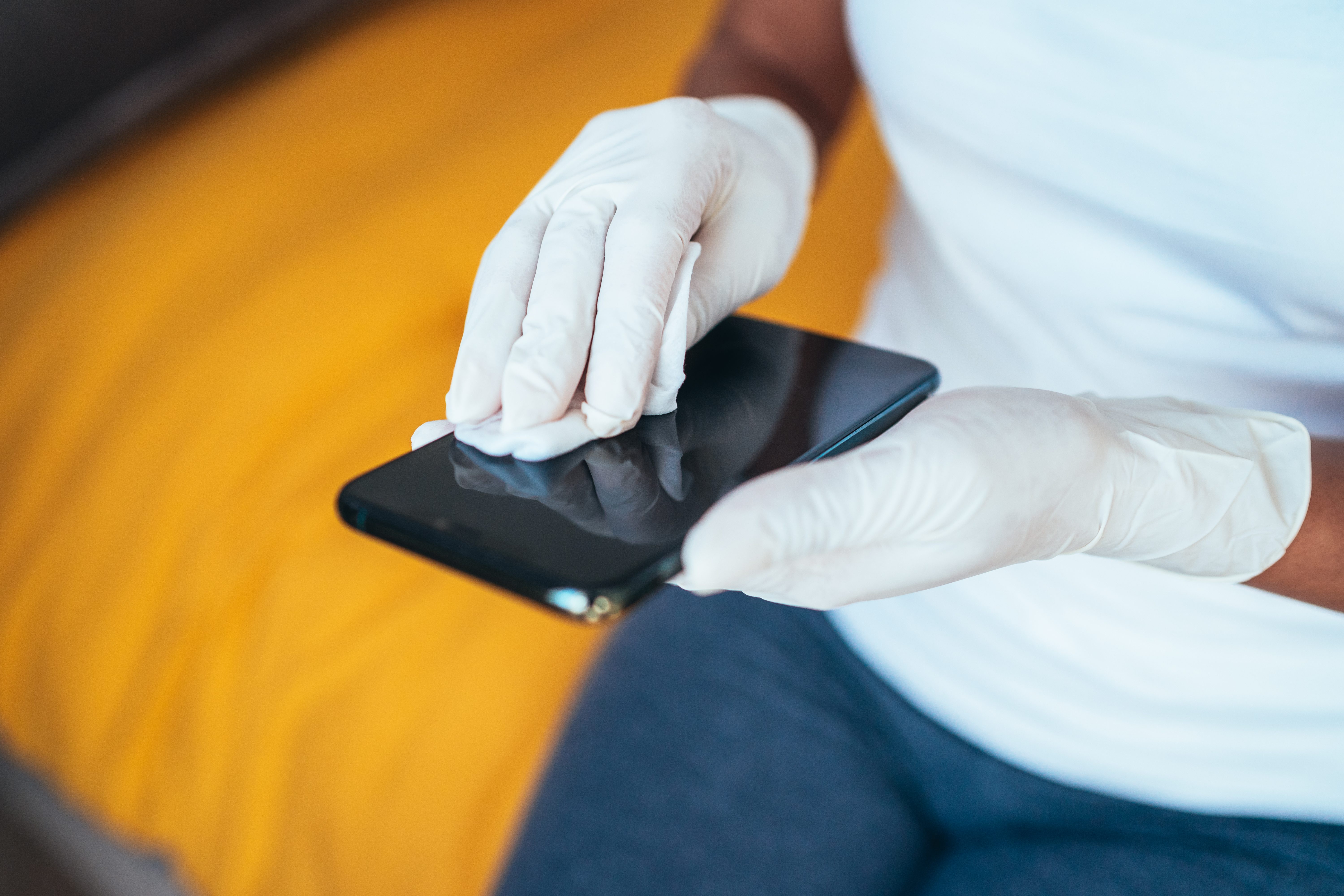
Using it on your phone screen
Antibacterial wipes shouldn’t be used on everything. While cleaning your electronics is certainly important, using antibacterial wipes on it could actually be damaging. “While the wipes are generally safe to use on your keyboards, they should be used on the back or non-glass parts of your phones only,” explains Turley. “The chemicals in the wipes can break down the coating on screens that is supposed to prevent fingerprint marks.”
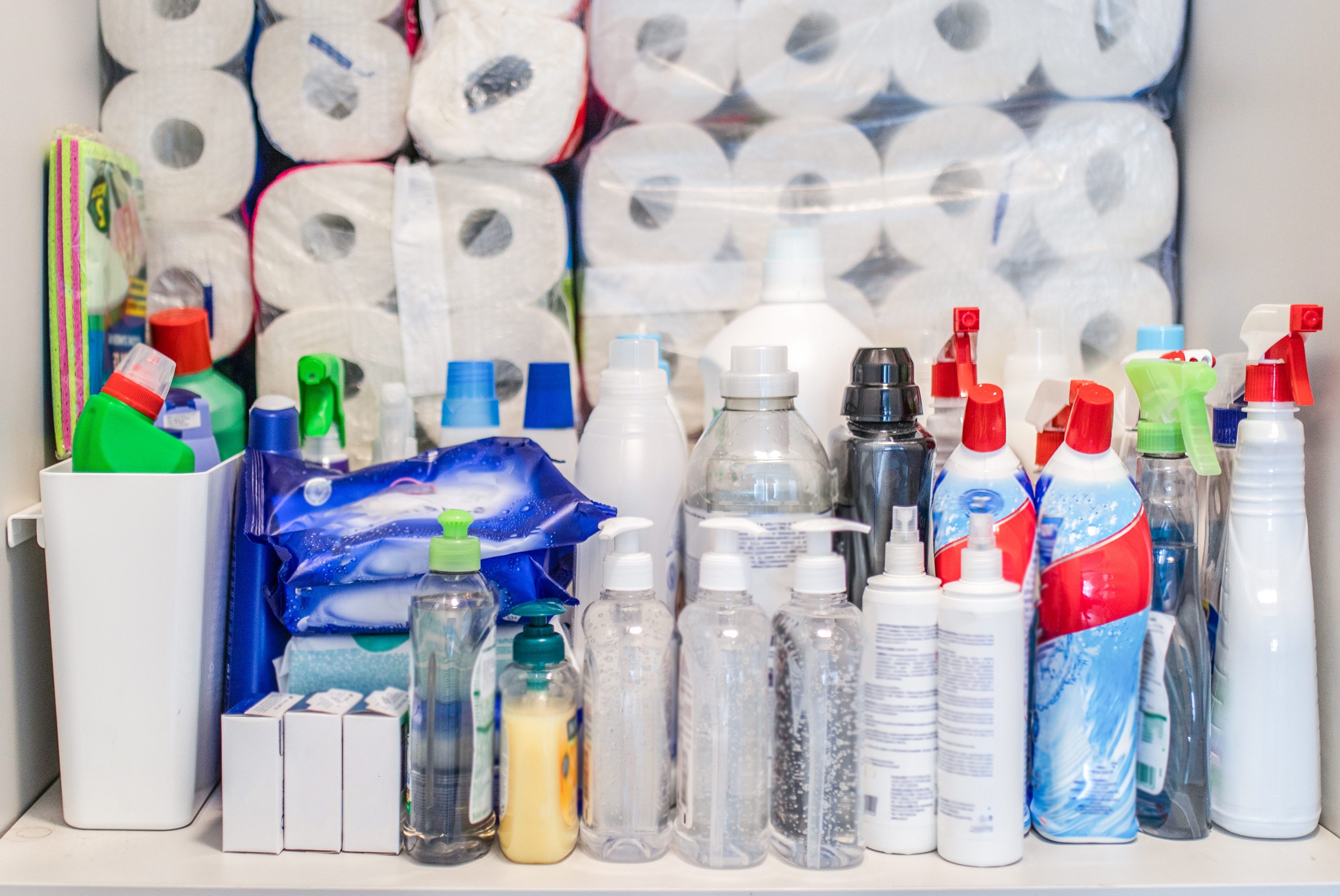
Storing it improperly
Yes, mistakes can be made while storing it, not just using it, frustratingly enough. Specifically, make sure you close the packaging so that the wipes aren’t exposed to open air. “Most of the time, they have alcohol as a disinfectant method,” says Dr. Nidhi Ghildayal, PhD, a researcher with a focus on infectious diseases. “If you leave them open, the alcohol will dry out and your wipes will become useless.” Likewise, don’t use a dried-up wipe on a surface; if it’s dried up it’s lost most of its cleaning power and will be ineffective.
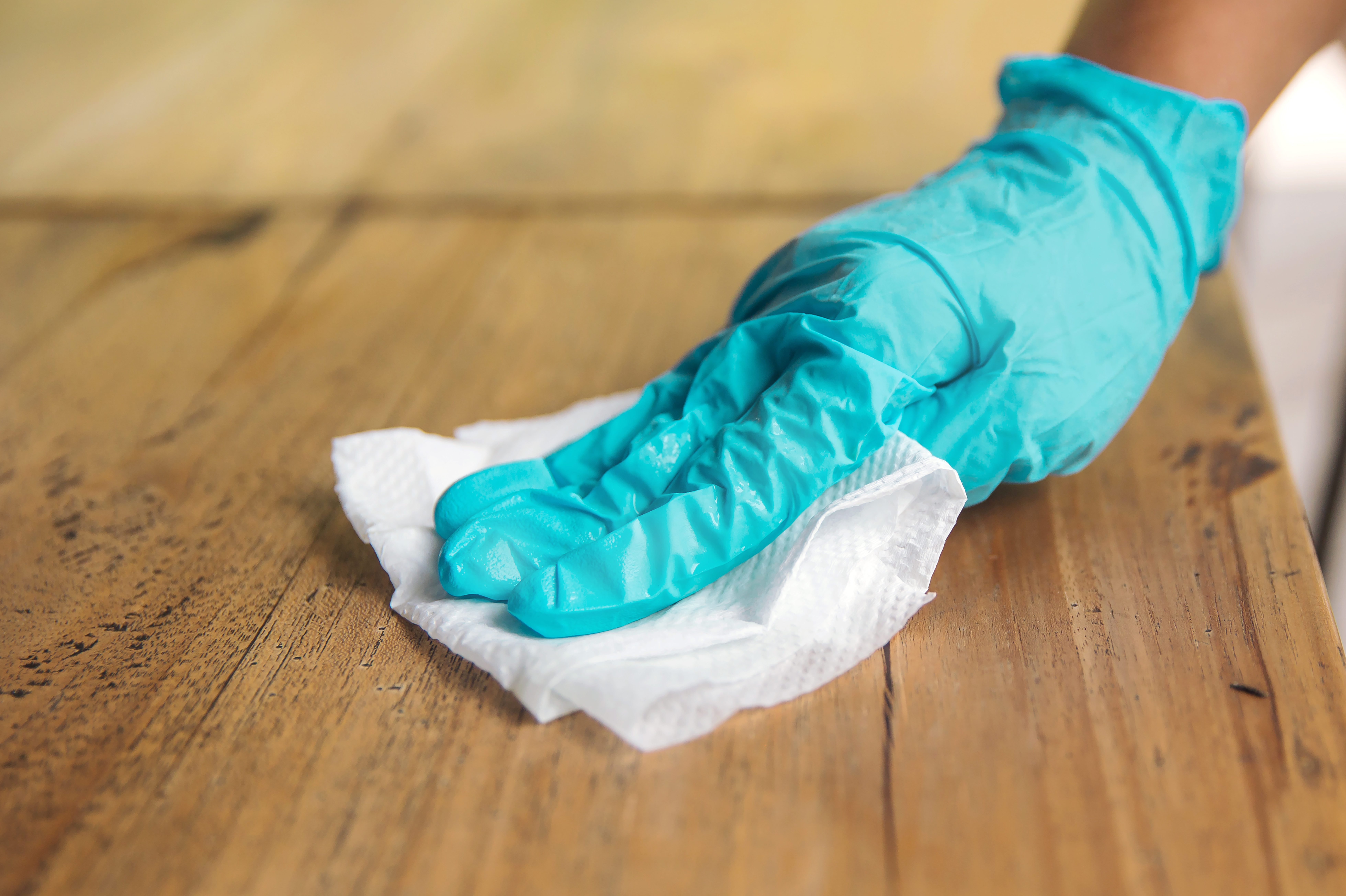
Using it on wood
Antibacterial wipes can damage wooden surfaces; there are no two ways to say it. “Any kind of wood flooring or furniture you own should not be cleaned with antibacterial wipes,” explains licensed health coach Jamie Bacharach. This is because the porous wood can absorb the liquid from the wipes, damaging it. “These wipes may leave behind a stain and, unless otherwise specified, are typically not designed for use with wood.” Surprise—another reason to read the label! Wood is actually one of several things you shouldn’t be using antibacterial wipes on.
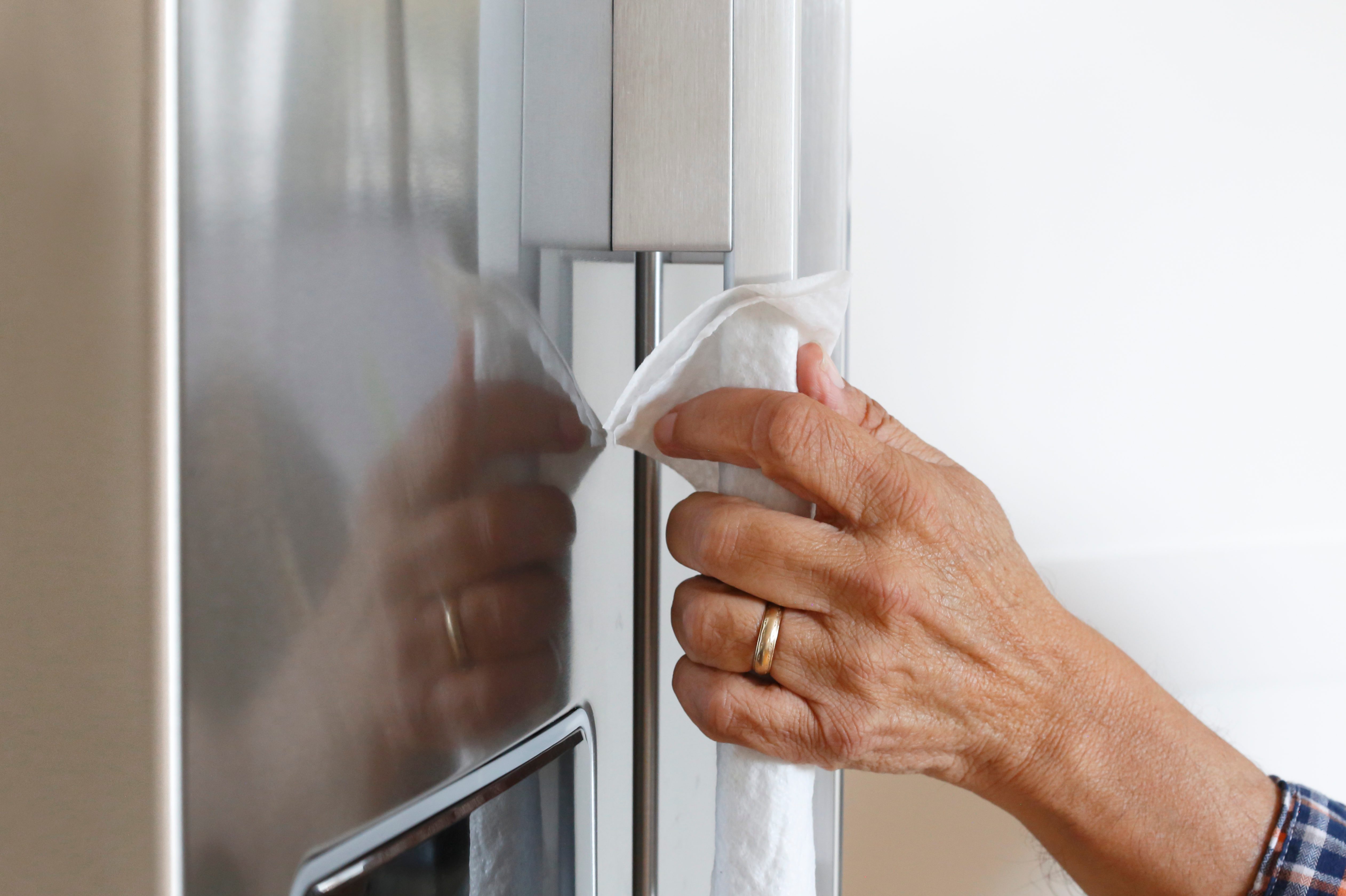
Using it on visibly dirty surfaces
This might sound strange at first since cleaning is its entire purpose. But if you use it on a space that’s actively dirty, you could just end up pushing the dirt around. Removing dirt from surfaces should be a different process than disinfecting with wipes. “A dirty surface makes it more difficult to disinfect,” explains Daw. “So you may need to give the surface a good scrubbing with one wipe (or just soap and water), then grab a second wipe to disinfect.” This makes more sense when you learn the difference between cleaning, disinfecting, and sanitizing.
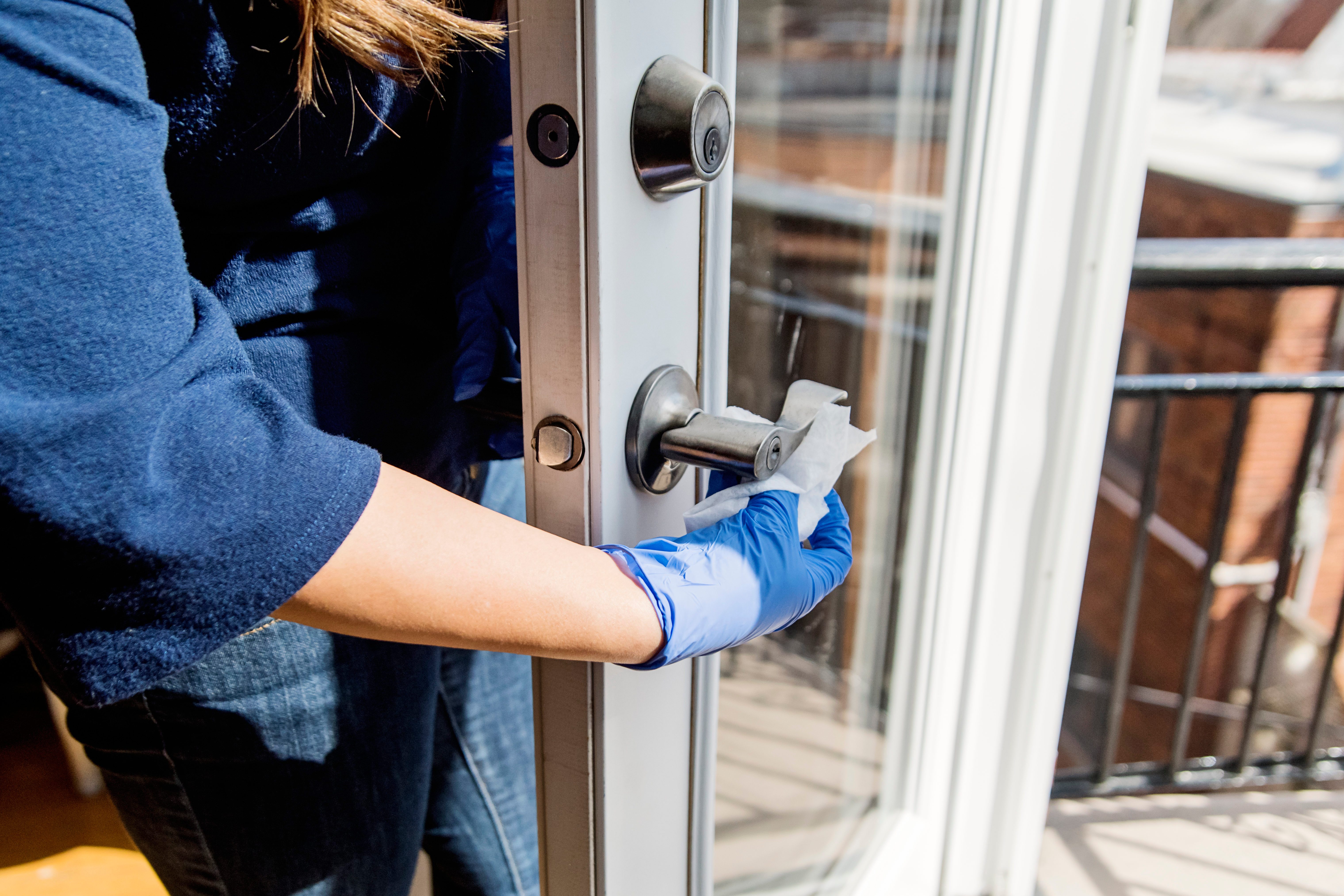
Using it after its expiration date
You might not think that antibacterial wipes would have an expiration date—and Ghildayal points out that sometimes, in fact, it actually doesn’t. “You might not find an expiration date on your wipes,” he told RD.com, “but you should generally not use them more than two years after purchase, at the most.” Without an expiration date, how will you know when to stop using it? “If they have a weaker scent then usual when you reopen them for use, they are likely too old to be used,” Ghildayal suggests. Of course, that probably won’t be a problem right now as most people certainly aren’t letting their wipes linger unused, but it’s still good to know that it’s one of the surprising things you didn’t know had an expiration date.
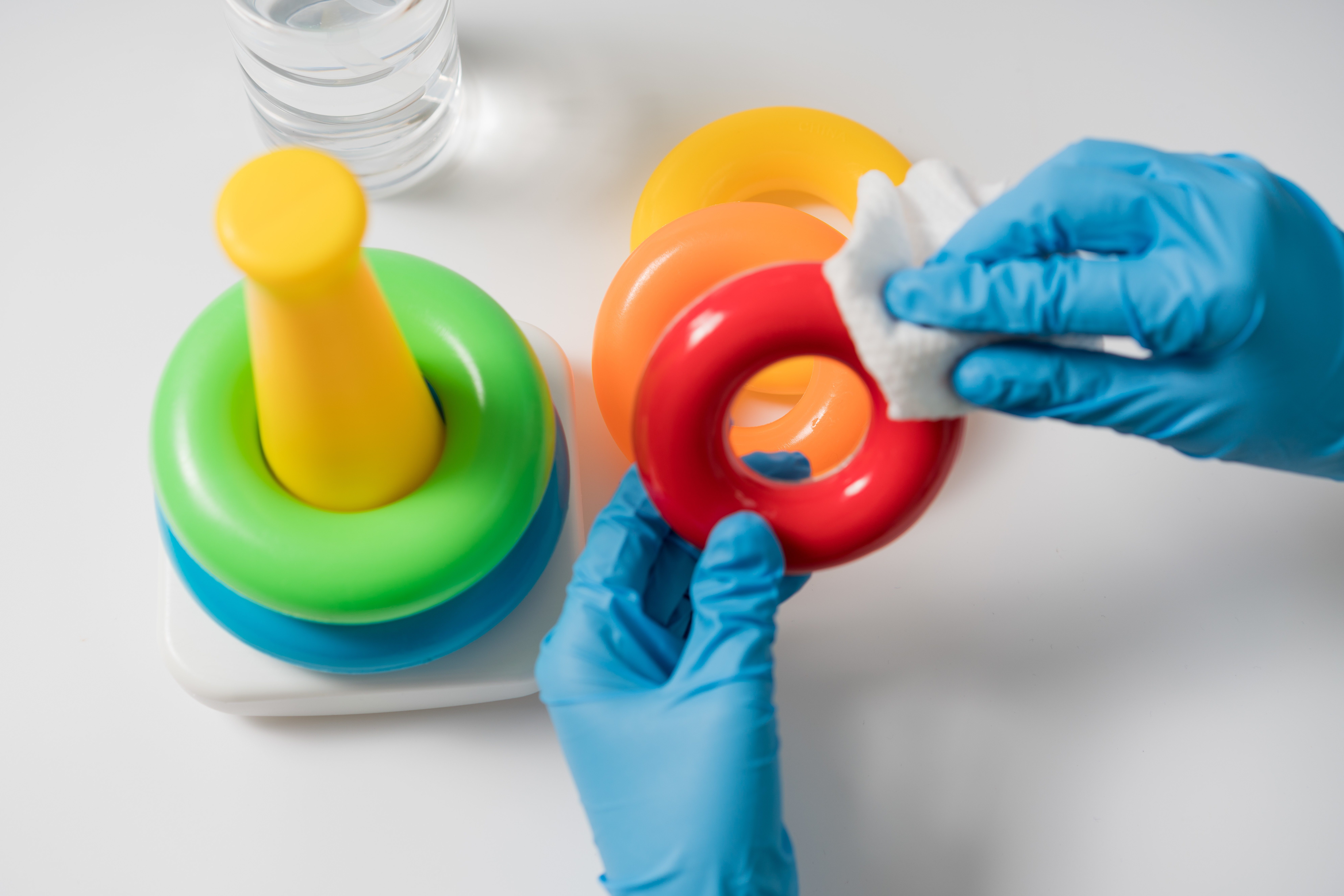
Using it for kids’ toys and pet bowls
Keep in mind cleaning products are not meant to be ingested, especially by children! So avoid using it on your pets’ food bowls or children’s toys (especially baby toys, which you know the tots are going to put in their mouths!). “Antibacterial wipes carry chemicals, which are…left behind on the surfaces they come into contact with,” explains Bacharach. “Any object that a pet (or kid!) may put in their mouth or lick should be cleaned with a water-based, non-chemical solution to ensure safety.” Check out these safe ways to clean kids’ toys.
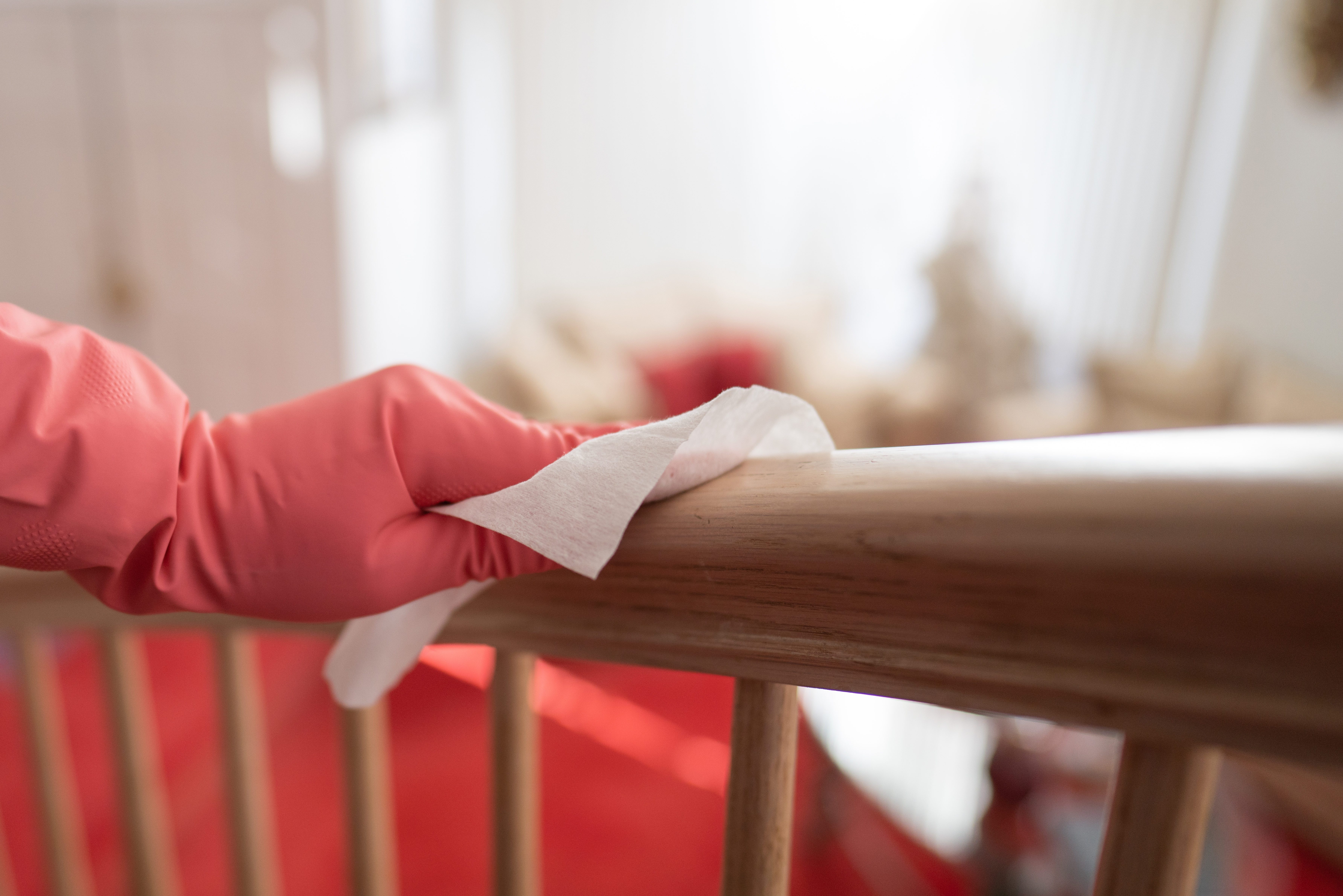
Using it as your only cleaner
This may seem obvious, but it still deserves a mention. Antibacterial wipes are good for helping you to quickly disinfect a surface. It won’t provide a “deep clean” or clean specific surfaces that need a certain cleaning product. “They are not good enough to be the sole cleaner for your kitchen and bathroom surfaces,” specifies Jon Gibbons of Smart Vacuums. “Antibacterial wipes are great for a quick rundown, but they will not leave the kitchen or bathroom sparkling under the surface.” Next, find out these ways you haven’t been using bleach—but should.
